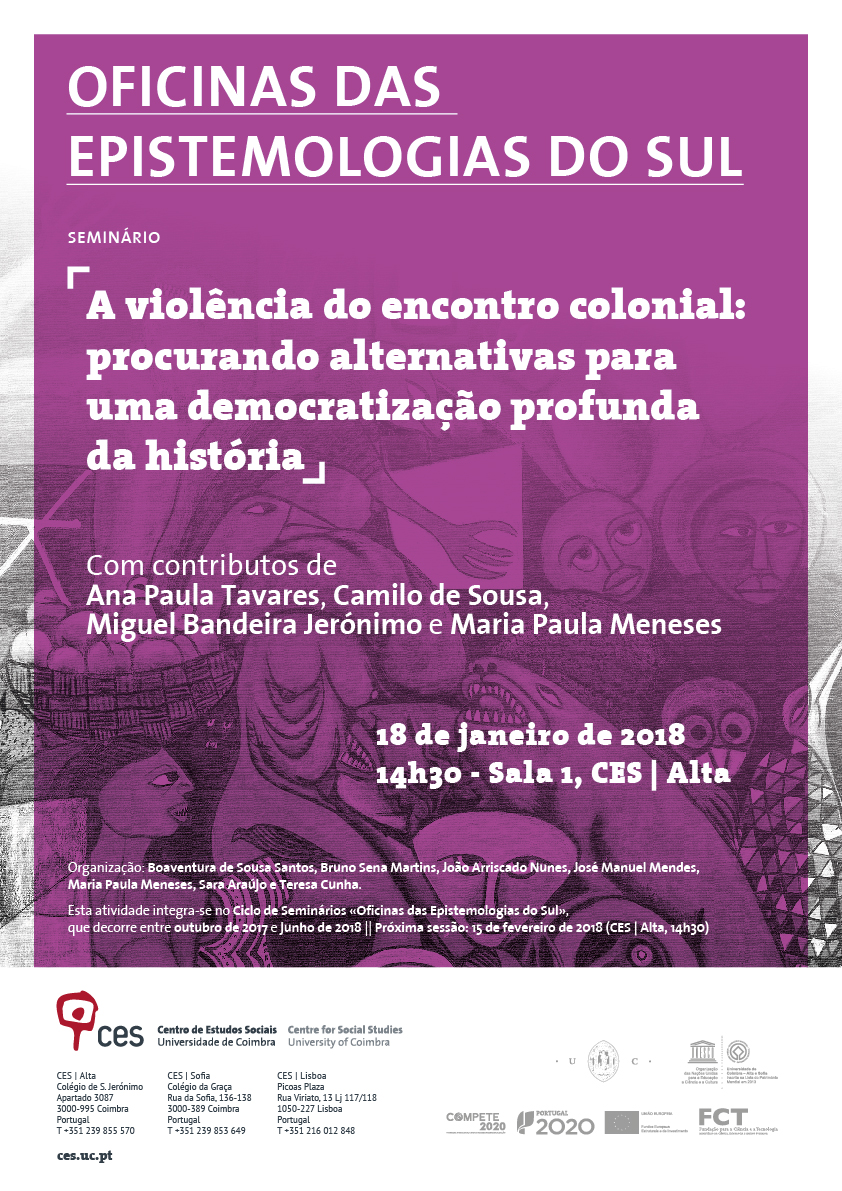Seminar
The violence of the colonial encounter: seeking alternatives towards an in-depth democratisation of history
Ana Paula Tavares
Camilo de Sousa
Maria Paula Meneses
Miguel Bandeira Jerónimo
January 18, 2018, 14h30
Room 1, CES | Alta
Overview
This workshop is part of ALICE, an action-research programme that has as one of its main axes the provincialisation of knowledge and, alongside, the recognition of the complex historical interconnections forged through the colonial processes of domination and subordination. It is our objective to discuss in dialogue, from the participants' contributions the broader histories of colonialism, in order to better understand the multiple historical metamorphoses of colonialism and its contemporary political uses.
Colonisation is violence. This brutality, radically dissected by Aimé Cesaire, is based on the downgrade of the other to a thing, a non-being, someone with the potential to be human, if converted and domesticated, through education and work, as recall the laws and analyses produced in Portugal at the beginning of the 20th century, which lasted until the end of the colonial empire. Consequently, one of the elements that characterizes the modern colonisation is the implantation of an abyssal division between the “metropolitan space” - the space of the power, and the colonial space; the history of colonial space will be essentially written from imperial perspectives, a reflection of metropolitan imperial knowledge, with all its limitations. The consequence of this violent epistemological fracture, which continues to call for a more rigorous study, is the constitution of a “colonial library”, whose knowledges still remain deeply entrenched in many contemporary narratives. The historical, social, and political contexts of the production of the “colonial library” are obscured or ignored. Moreover, several authors take the colonial project and the knowledges produced by it as ideal referents of governance.
Subsequently, it is difficult to understand colonialism as a political project without considering the contexts and instruments of its application, and without identifying and questioning the permanence of its latencies beyond political independences. In recent years, whether in political discourses - for example, Sarkozy's speeches in Dakar or Marcelo Rebello de Sousa in Gorée - or in academic publications, there are several episodes in which efforts have been made to justify the advantages of colonialism for the African peoples or the putative disadvantages of the end of the colonial relationship. More recently, an article by a North American scholar, Bruce Gilley, has provoked a profound uneasiness by advocating, in an article published in a progressive prestigious academic journal, rehabilitating the “positive mission” of the colonial enterprise as a solution for the called so-called “failed states” of our time.
With contributions from Ana Paula Tavares, Camilo de Sousa,Miguel Bandeira Jerónimo and Maria Paula Meneses
This activity is part of the Seminar Series "Epistemologies of the South Workshops", which runs from October 2017 to June 2018
.jpg)


